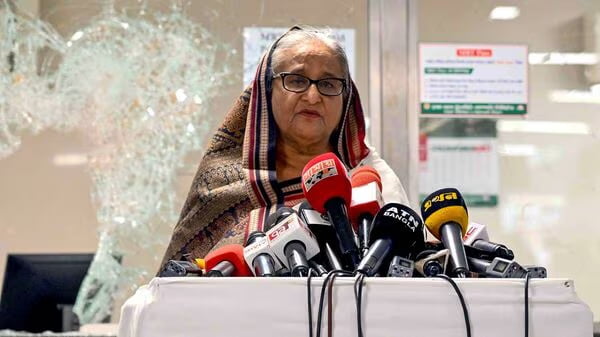In a stunning turn of events, Bangladesh Prime Minister Sheikh Hasina has resigned and fled the country amid widespread protests that have turned violent, resulting in over 300 deaths. This political upheaval has led to the military assuming control, with Army Chief General Waker-Uz-Zaman announcing the formation of an interim government. The situation has escalated dramatically since protests began over a civil service job quota system, which many viewed as discriminatory and outdated.
Background of the Protests
The unrest in Bangladesh can be traced back to student-led protests that erupted in June 2024 against the reinstatement of a job quota system that reserved a significant percentage of government jobs for specific groups, including families of war veterans. This decision was seen as a regression by many, especially in a country where youth unemployment is alarmingly high. Nearly 32 million young people in Bangladesh are either unemployed or out of education, fueling frustrations among the populace.
Despite the Supreme Court’s ruling to reduce the quotas to a more merit-based system, protests intensified, culminating in violent clashes. Demonstrators demanded not only the resignation of Hasina but also justice for those killed in the protests and the restoration of internet services that had been cut off by the government. The situation reached a boiling point on August 4, 2024, when protesters stormed Hasina’s official residence, Ganabhaban, leading to chaotic scenes and widespread vandalism.
The Resignation and Flight
Faced with mounting pressure and an ultimatum from the military, Hasina resigned on August 5, 2024. Reports indicate that she left Dhaka in a military helicopter, accompanied by her sister, Sheikh Rehana. Initial reports suggested that she would head to New Delhi, but the situation quickly changed as West Bengal Chief Minister Mamata Banerjee reportedly denied her entry into the state. Instead, she was believed to have landed in Agartala, Tripura, where Indian authorities confirmed her arrival but denied her asylum.
Sources indicate that after negotiations, India offered assistance but ultimately decided against granting Hasina asylum. As a result, she is now believed to be en route to either Finland or Switzerland, seeking refuge in a country that may offer her a safe haven from the turmoil back home.
The Role of the Military
The military’s involvement in this political crisis has been significant. General Waker-Uz-Zaman’s announcement of an interim government indicates a shift towards military rule, reminiscent of past coups in Bangladesh’s history. The army had previously supported Hasina’s government, but as protests escalated, it became clear that the military’s allegiance was shifting.
In the wake of Hasina’s resignation, the army has called for a meeting with political leaders to discuss the future governance of the country. This move has raised concerns about the potential for a prolonged military presence in Bangladeshi politics, which could further destabilize the nation.
Public Sentiment and the Future
Public sentiment in Bangladesh is deeply divided. While many protesters view Hasina’s departure as a victory against authoritarianism, others fear that military rule could lead to further repression. The protests have united various segments of society, including students, civil rights activists, and ordinary citizens who are demanding accountability and justice.
The economic implications of this political upheaval are also significant. Bangladesh’s economy, once one of the fastest-growing in the world, has been faltering in recent years, with inflation hovering around 10% and dwindling dollar reserves. The political instability is likely to exacerbate these economic challenges, leading to increased hardship for the average Bangladeshi.
Sheikh Hasina’s resignation marks a pivotal moment in Bangladesh’s political landscape. As the country grapples with the aftermath of her departure and the rise of military control, the future remains uncertain. The protests that led to her resignation reflect deep-seated frustrations with governance, economic stagnation, and a lack of political freedom.
The international community will be watching closely as Bangladesh navigates this critical juncture in its history. The potential for a return to military rule raises concerns about human rights and democratic governance, while the ongoing protests indicate that the demand for change is far from over. As Bangladesh moves forward, the question remains: what will the future hold for a nation in turmoil?
